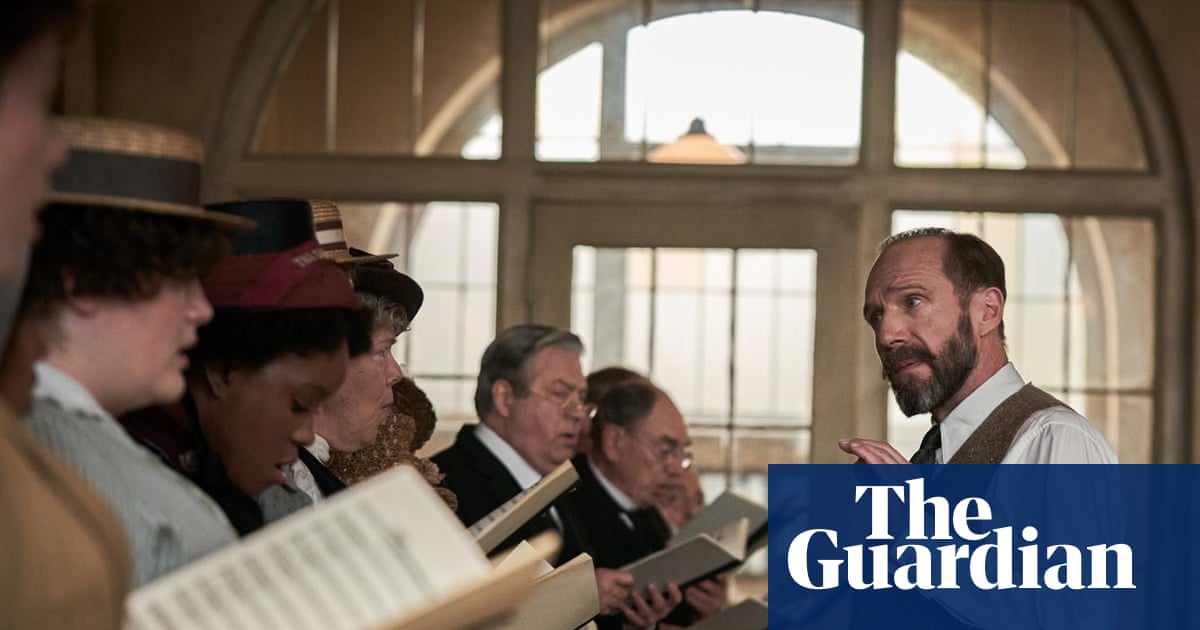
"Nicholas Hytner's new film, The Choral in UK cinemas today culminates in an unconventional rendition of Edward Elgar's The Dream of Gerontius. Alan Bennett's screenplay is an affectionate portrayal of a choral society in a small Yorkshire town during the first world war. Searching for non-German repertoire, the chorusmaster Dr Guthrie (Ralph Fiennes) settles in desperation on Gerontius. Perhaps it is Elgar's reputation as a pillar of the British establishment he appears briefly in the film, a cameo from an extravagantly moustachioed Simon Russell Beale that reassures Bennett's fictional committee members that this will be a safe choice."
"But as Guthrie starts to teach the unfamiliar score, they realise Sir Edward's patrician persona has deceived them. They expected something staidly English, but instead encounter music they find disturbingly Catholic, foreign and theatrical. Bennett's screenplay is full of characteristic whimsy at one point choir members deliver pitch-perfect renditions of Gerontius as they run through the streets, a scenario the intricacy of Elgar's choral writing makes difficult to believe but it is nonetheless rooted in a secure understanding of the work's troubled and controversial history."
"Much of the controversy came from Elgar's choice of text. John Henry Newman wrote his long narrative poem in 1865, after the conversion to Catholicism that had seismic consequences for him and the Church of England. It depicts an everyman figure (the name Gerontius is taken from the Greek word for old man) who passes through the moment of death. He meets an angel who shows him the face of God, before sending him to purgatory with the promise of everlasting glory thereafter."
A new film culminates in an unconventional rendition of Elgar's The Dream of Gerontius. The screenplay affectionately portrays a choral society in a small Yorkshire town during the first world war. The chorusmaster chooses Gerontius as non-German repertoire, and the choir expects staidly English music but instead encounters unsettling Catholic, foreign and theatrical qualities. Whimsical set-pieces, including choir members singing through the streets, coexist with a clear sense of the work's troubled, controversial history. Much controversy stems from John Henry Newman's 1865 poem and its depiction of purgatory, which conflicts with Protestant theology.
Read at www.theguardian.com
Unable to calculate read time
Collection
[
|
...
]